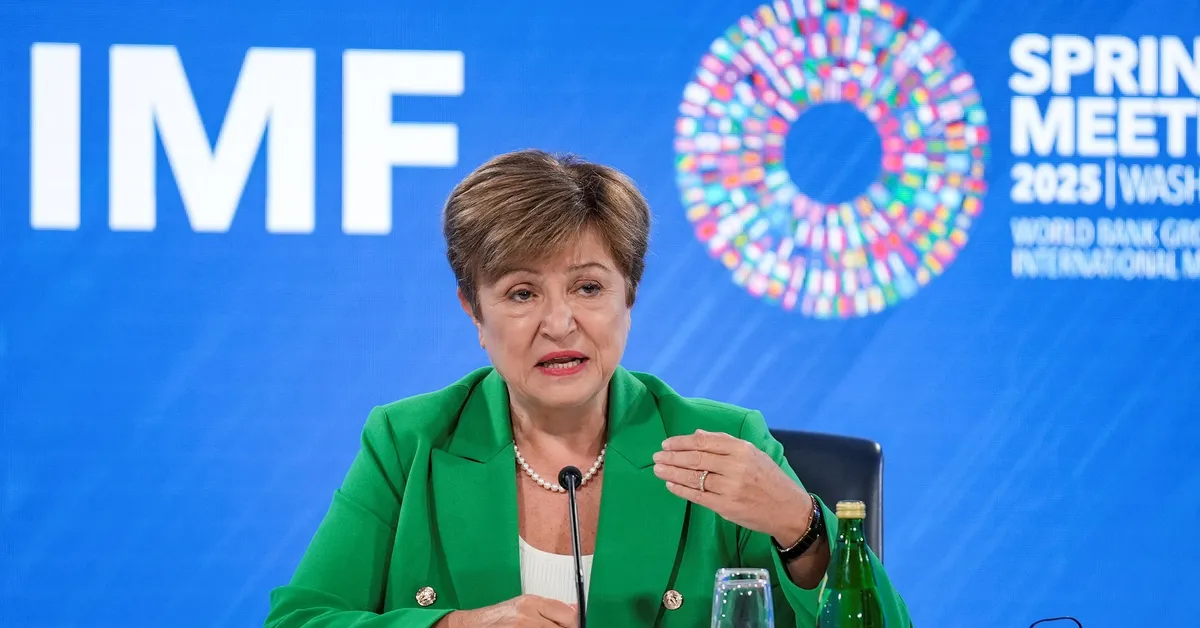
In a significant gathering in Washington, global policymakers expressed a collective sigh of relief regarding the stability of the U.S.-centric economic order, which has been in place for the past 80 years. Despite the inward-looking approach characterized by former President Donald Trump, the discussions at the Spring Meetings of the International Monetary Fund (IMF) and the World Bank were dominated by trade talks and a welcoming shift in the U.S. administration's tone towards international relations, particularly with China.
During the meetings, there were notable de-escalatory statements from Washington, which reflected a commitment to maintaining dialogue on trade issues. This shift has provided a sense of reassurance to central bankers and finance ministers who have been grappling with the implications of Trump's prior attacks on international institutions and the Federal Reserve. A pressing question emerged: can the world still rely on the U.S. dollar as the global safe haven and on the IMF and World Bank for support?
Conversations with numerous global policymakers revealed a general sense of relief following Trump's decision to scale back his threats against Fed Chair Jerome Powell. Powell serves as a crucial figure in maintaining the international status of the dollar. Additionally, many policymakers viewed U.S. Treasury Secretary Scott Bessent’s call to reshape the IMF and World Bank in line with Trump’s priorities as a positive sign. This indicated that the United States was not planning to withdraw from these critical institutions established during the Bretton Woods conference of 1944.
As Austria's central bank governor, Robert Holzmann, noted, this week brought a sense of cautious optimism, yet he remained wary of future changes. He cautioned that the politicization of the Fed and the potential weakening of the IMF and World Bank could have far-reaching consequences. Without a reliable lender of last resort, approximately $25 trillion in bonds and loans issued abroad would face significant uncertainties.
At the core of policymakers' concerns is the absence of a viable alternative to the United States as the global financial hegemon, a scenario known as the Kindleberger Trap. While the euro, a distant second as a reserve currency, has gained traction due to the relative stability of the European Union, many experts agree it is still not ready to replace the dollar. The euro currently holds only a 20% share of global reserves, with Germany being the only eurozone country possessing the credit rating and economic size that investors seek in a safe haven.
Other eurozone members face significant financial challenges, including high debt levels and susceptibility to political turmoil, as evidenced by recent events in France. Additionally, the geographical proximity of the eurozone to Russia, particularly concerning the Baltic states, adds further complexity to its long-term viability as a stable economic bloc.
With Japan's economy being too small and China's currency heavily managed, there is currently no viable alternative to the dollar system, which is supported by the Federal Reserve and the Bretton Woods institutions. Many officials assert that the IMF and World Bank could struggle to survive if the United States, their largest shareholder, were to withdraw.
Polish Finance Minister Andrzej Domanski emphasized the critical role of the U.S. in multilateral institutions, expressing relief that the U.S. remains engaged. However, few expect a return to the previous status quo, as significant challenges lie ahead. These challenges include a reliance on U.S. firms for essential services ranging from credit cards to satellite technology.
Some analysts propose that the recent market turmoil, which saw sharp sell-offs in U.S. bonds, stocks, and the dollar, may have prompted a necessary adjustment in the administration's approach. According to Nathan Sheets, global chief economist at Citi, the vigorous market reaction to Trump's threats of firing Powell served as a reminder of the severe implications that could arise from such actions.
In summary, while this week provided a moment of cautious relief for global policymakers regarding the U.S. economic order, the path forward remains fraught with uncertainties and challenges that will require careful navigation.